Are you planning to renovate your home in Singapore but don’t have enough savings to cover the cost? A renovation loan can help you finance your home improvement project. But how much renovation loan can you get in Singapore?
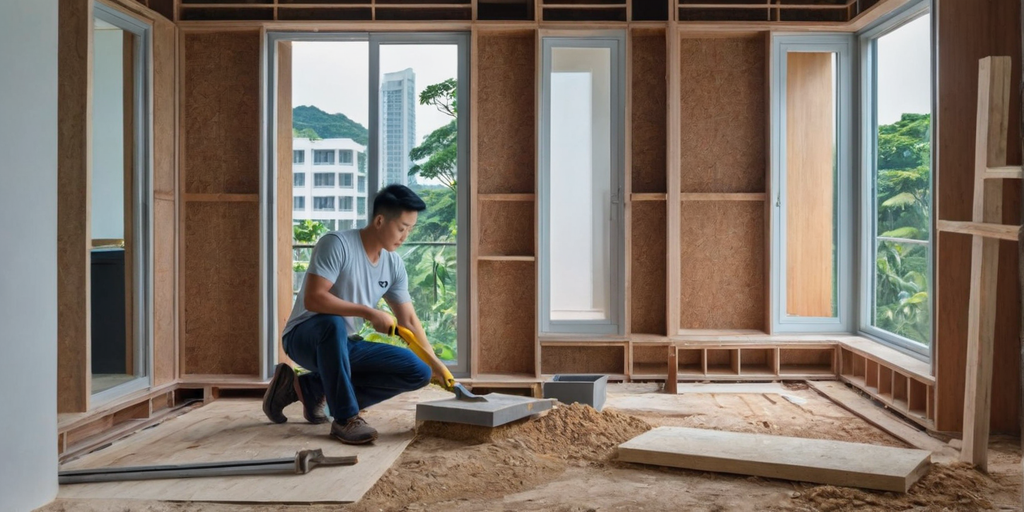
The amount you can borrow for a renovation loan in Singapore depends on several factors, such as your income, credit score, and the type of renovation you plan to undertake. Most banks and financial institutions offer renovation loans with a maximum borrowing amount of up to six times your monthly income or SGD 30,000, whichever is lower. However, the actual amount you can borrow may vary depending on your eligibility and creditworthiness.
To determine how much renovation loan you can get in Singapore, you need to understand the eligibility criteria, application process, and costs involved in home renovations. In this article, we will guide you through the process of getting a renovation loan in Singapore and help you determine the maximum amount you can borrow.
Key Takeaways
- Renovation loans in Singapore allow you to borrow up to six times your monthly income or SGD 30,000, whichever is lower.
- The actual amount you can borrow depends on your eligibility and creditworthiness.
- To determine how much renovation loan you can get, you need to understand the eligibility criteria, application process, and costs involved in home renovations.
Understanding Renovation Loans in Singapore
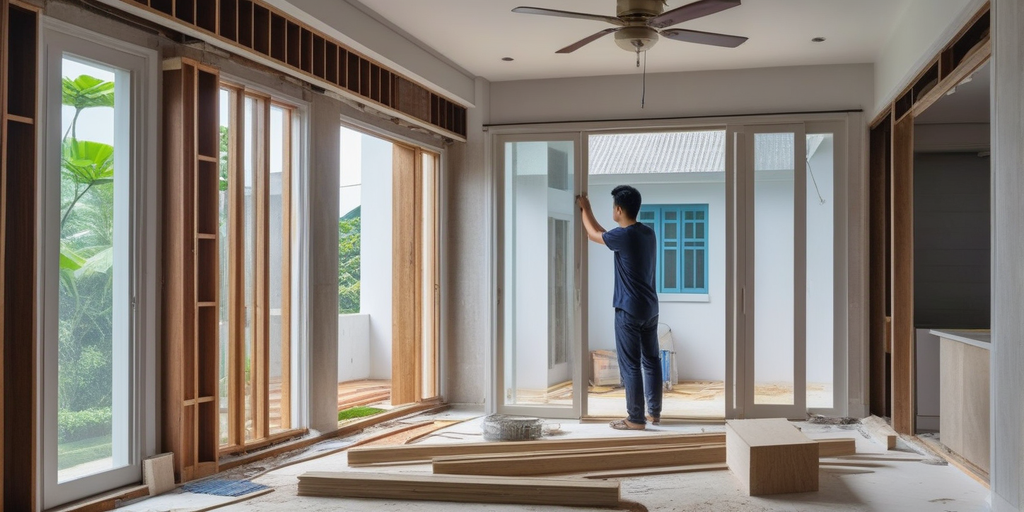
If you’re planning to renovate your home in Singapore, you may be wondering how much renovation loan you can get. Renovation loans are a popular financing option for homeowners who want to improve their living spaces. In this section, we’ll take a closer look at renovation loans in Singapore and what you need to know before applying for one.
What is a Renovation Loan?
A renovation loan is a type of loan that is designed specifically for home renovations. It is different from a personal loan or a home loan, as it is meant only for the financing of renovations of both new and existing homes. Renovation loans typically have lower interest rates than personal loans, making them a more affordable option for homeowners.
Differences Between Renovation Loans and Personal Loans
While renovation loans and personal loans may seem similar, there are some key differences between the two. Personal loans can be used for a wide range of purposes, including home renovations. However, personal loans typically have higher interest rates than renovation loans. Additionally, renovation loans are often secured loans, which means that you will need to provide collateral, such as your home, to secure the loan.
When comparing renovation loans and personal loans, it’s important to consider the loan amount, interest rate, and repayment period. Renovation loans typically have a maximum loan amount of around six times your annual salary or $30,000, whichever is lower. Loan repayment tenors typically range between one to five years. On the other hand, personal loans may offer higher loan amounts, but they often come with higher interest rates and shorter repayment periods.
In conclusion, if you’re planning to renovate your home in Singapore, a renovation loan may be a good financing option for you. Renovation loans offer lower interest rates than personal loans and are designed specifically for home renovations. However, it’s important to consider the loan amount, interest rate, and repayment period when choosing between a renovation loan and a personal loan.
Eligibility Criteria for Renovation Loans
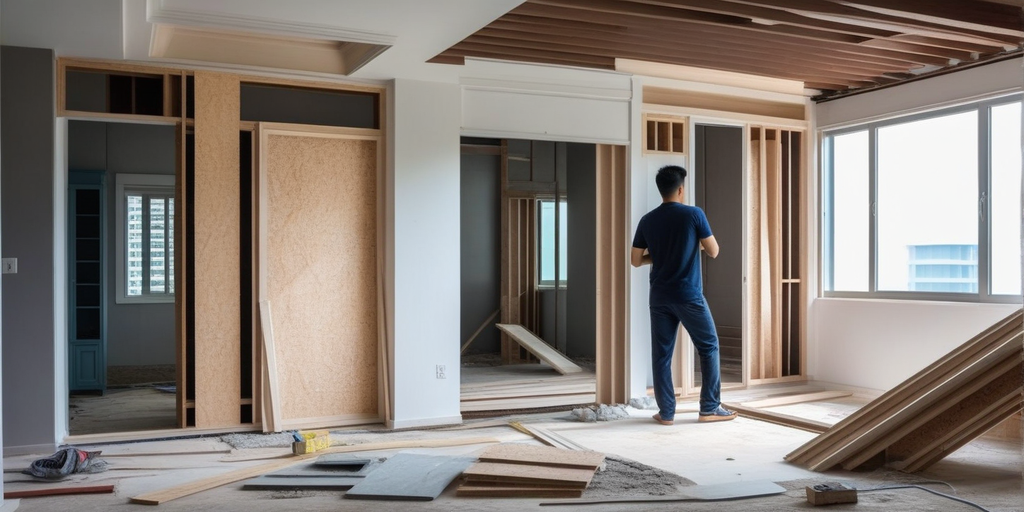
If you’re planning to renovate your home in Singapore, you may be considering taking out a renovation loan. However, before you apply for a loan, it’s important to know if you’re eligible. Here are some of the eligibility criteria you need to meet to qualify for a renovation loan.
Age Requirements
To be eligible for a renovation loan, you must be between 21 and 60 years old. If you’re younger than 21 or older than 60, you may not be able to apply for a loan. However, some lenders may have different age requirements, so it’s important to check with them before you apply.
Income Thresholds
Another important eligibility requirement is your income. To qualify for a renovation loan, you need to have a minimum monthly basic salary of $1,200. This applies to both salaried and contract staff, as well as self-employed individuals and private hired drivers. The loan amount you can borrow will depend on your income. Typically, you can borrow up to 6 times your monthly income or $30,000, whichever is lower. However, some lenders may offer higher loan amounts if you have a higher income.
Property Ownership Proofs
To apply for a renovation loan, you must also be a Singapore citizen or permanent resident. Additionally, you must be the owner of the property you’re planning to renovate. You’ll need to provide proof of ownership, such as a copy of your property title or sales and purchase agreement. If you’re not the sole owner of the property, you may need to provide additional documents to prove your ownership share.
In summary, to be eligible for a renovation loan in Singapore, you need to meet age requirements, have a minimum income of $1,200, and be a Singapore citizen or permanent resident who owns the property you’re renovating. Make sure you have all the necessary documents and meet the eligibility criteria before you apply for a loan.
How to Apply for a Renovation Loan
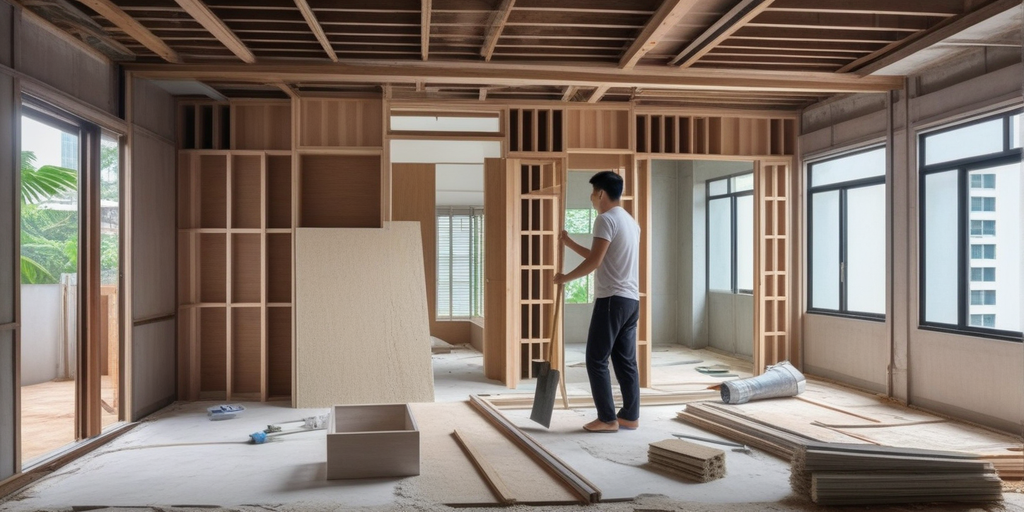
If you are planning to apply for a renovation loan in Singapore, you need to follow a few simple steps to get the process started. Here is a breakdown of the application process, documents required and online application steps:
Application Process
The first step to applying for a renovation loan is to determine the amount you need to borrow. You can use the DBS Renovation Loan Calculator to estimate your monthly repayment amount and stay on budget. Once you have determined the amount you need to borrow, you can proceed to apply for the loan.
Documents Required
To apply for a renovation loan, you will need to provide the following documents:
- NRIC or passport
- Proof of ownership (e.g. HDB or private property title deed)
- Latest renovation quotation or invoice
- Proof of income (e.g. latest 3 months’ payslips or CPF statements for salaried employees, latest 2 years’ income tax assessment for self-employed individuals)
Online Application Steps
To apply for a renovation loan online, follow these steps:
- Visit the DBS Renovation Loan page and click on “Apply Now”.
- Fill in your personal and contact details, and select the loan amount and repayment period.
- Upload the required documents and submit your application.
- Wait for the bank to process your application. You will be notified of the outcome via email or phone.
In conclusion, applying for a renovation loan in Singapore is a straightforward process. By following the steps outlined above, you can get the funds you need to carry out your home improvement project.
Determining How Much You Can Borrow
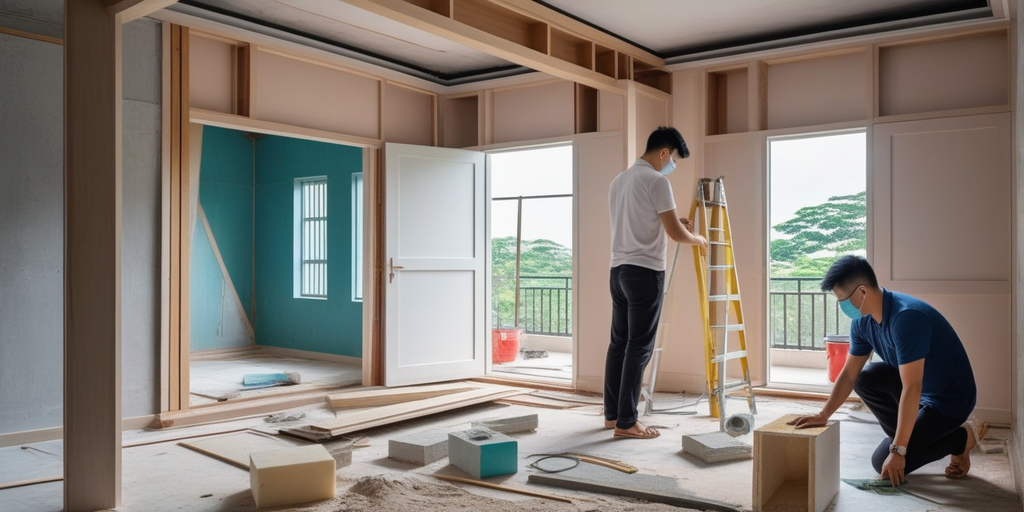
If you’re planning to renovate your home, you’ll need to have a clear idea of how much you can borrow. This will help you to budget effectively and ensure that you can complete the renovation without running out of funds. Here are some key factors to consider when determining how much you can borrow.
Calculating the Maximum Loan Amount
The maximum loan amount that you can borrow will depend on a range of factors, such as your income, credit score, and the value of your property. You can use a renovation loan calculator, such as the one provided by DBS Bank, to get an estimate of how much you can borrow.
It’s important to note that the loan amount should not exceed the total renovation cost. If the renovation cost is lower than the maximum loan amount, it’s advisable to borrow only what you need. This will help you to avoid over-borrowing and ensure that you can repay the loan comfortably.
Assessing Your Repayment Capacity
Before you apply for a renovation loan, it’s essential to assess your repayment capacity. This will help you to determine how much you can afford to borrow and ensure that you can repay the loan on time.
To assess your repayment capacity, you’ll need to consider your monthly income, expenses, and existing debt obligations. You can use a budgeting tool, such as a spreadsheet or an online calculator, to help you with this.
Once you have a clear idea of your repayment capacity, you can use a renovation loan calculator to determine the monthly repayment amount that you can afford. This will help you to choose a loan tenure that suits your budget and ensure that you can repay the loan comfortably.
In conclusion, determining how much you can borrow for a renovation loan in Singapore requires careful consideration of your income, expenses, and credit score. By calculating the maximum loan amount and assessing your repayment capacity, you can ensure that you can complete your renovation project within your budget and without any financial stress.
Comparing Renovation Loan Offers
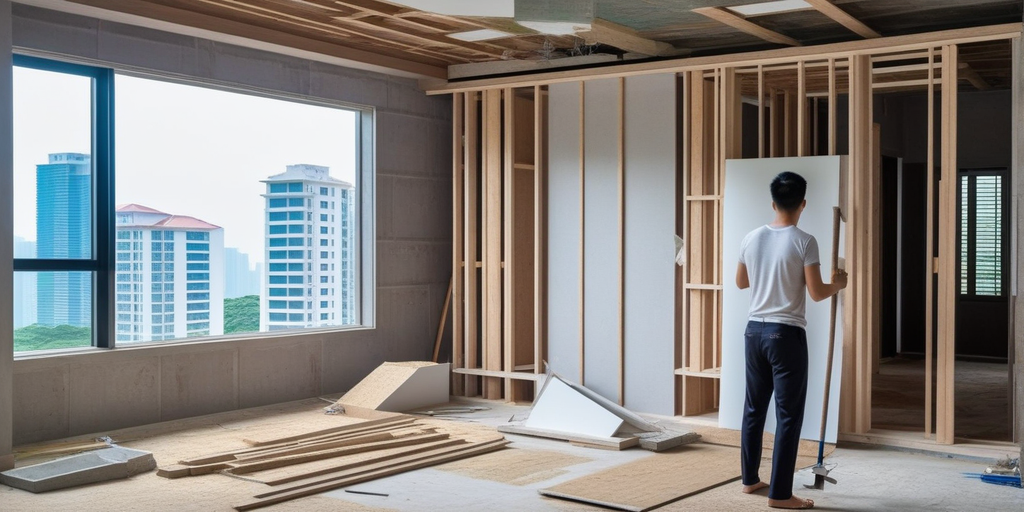
When it comes to choosing a renovation loan, it’s important to compare different offers to find the one that best suits your needs. Here are some factors to consider:
Interest Rates and Fees
One of the most important factors to consider when comparing renovation loan offers is the interest rate. This will determine how much you’ll be paying in interest over the course of the loan. Some lenders may also charge processing fees or admin fees, so be sure to factor these into your calculations as well.
Loan Tenure and Repayment Terms
Another important factor to consider is the loan tenure and repayment terms. Some lenders may offer longer loan tenures, which can help to lower your monthly repayments. However, keep in mind that a longer loan tenure also means paying more in interest over the course of the loan.
Promotional Offers and Benefits
Many lenders offer ongoing promotions and benefits to attract customers. For example, DBS Renovation Loan currently offers a cashback promotion, while OCBC Renovation Loan offers a free home insurance policy. Maybank Renovation Loan offers a lower interest rate for larger loan amounts, while CIMB Renovation-i Financing offers a Shariah-compliant option for Muslim customers.
It’s important to carefully consider all of these factors when comparing renovation loan offers in Singapore. By doing your research and comparing different offers, you can find the loan that best suits your needs and budget.
Costs Involved in Home Renovations
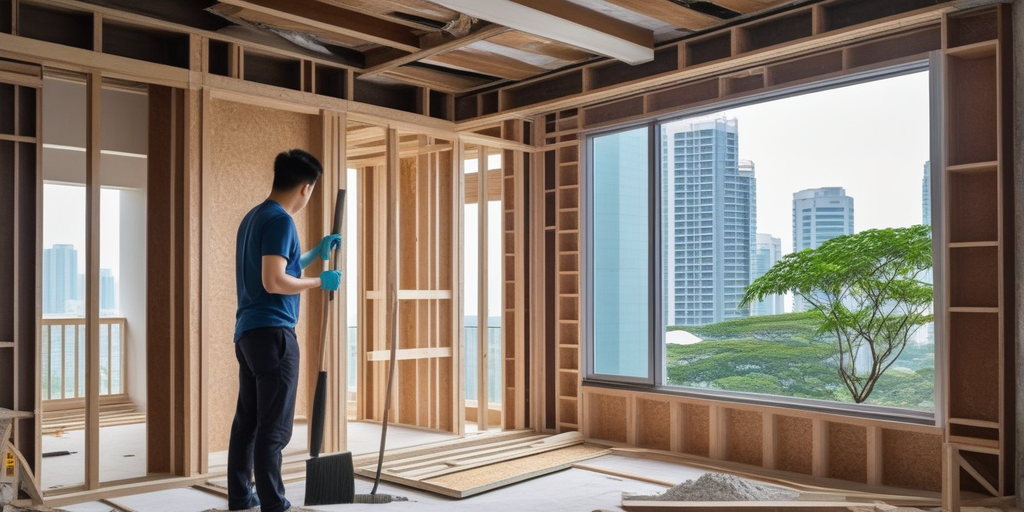
Renovating your home can be an exciting project, but it can also be a costly one. It is important to have a clear idea of the costs involved before starting any renovation work. Here are some of the costs you can expect to incur:
Renovation Work Breakdown
The cost of home renovations can vary depending on the type of work you want to do. Here is a breakdown of some of the common renovation work and their estimated costs:
- Flooring: The cost of flooring can range from £20 to £120 per square metre depending on the material you choose. For example, vinyl flooring is cheaper than hardwood flooring.
- Tiling: The cost of tiling can range from £40 to £100 per square metre depending on the type of tiles you choose.
- Painting: The cost of painting can range from £10 to £30 per square metre depending on the quality of paint you use and the complexity of the design.
- Electrical: The cost of electrical work can range from £50 to £100 per point depending on the complexity of the work.
- Fittings: The cost of fittings can range from £100 to £500 depending on the type of fittings you choose.
Materials and Labour Costs
The cost of materials and labour can also vary depending on the type of work you want to do. Here is a breakdown of some of the common materials and labour costs:
- Materials: The cost of materials can range from £500 to £10,000 depending on the type of work you want to do. For example, if you want to install a new kitchen, the cost of materials can range from £5,000 to £10,000 depending on the quality of the materials you choose.
- Labour: The cost of labour can range from £100 to £500 per day depending on the type of work you want to do. For example, if you want to install a new kitchen, the cost of labour can range from £1,000 to £2,000 depending on the complexity of the work.
It is important to note that these are just estimates and the actual cost of your home renovation may vary depending on several factors such as the size of your home, extent of work required, materials and choice of contractor.
Financial Planning for Your Renovation
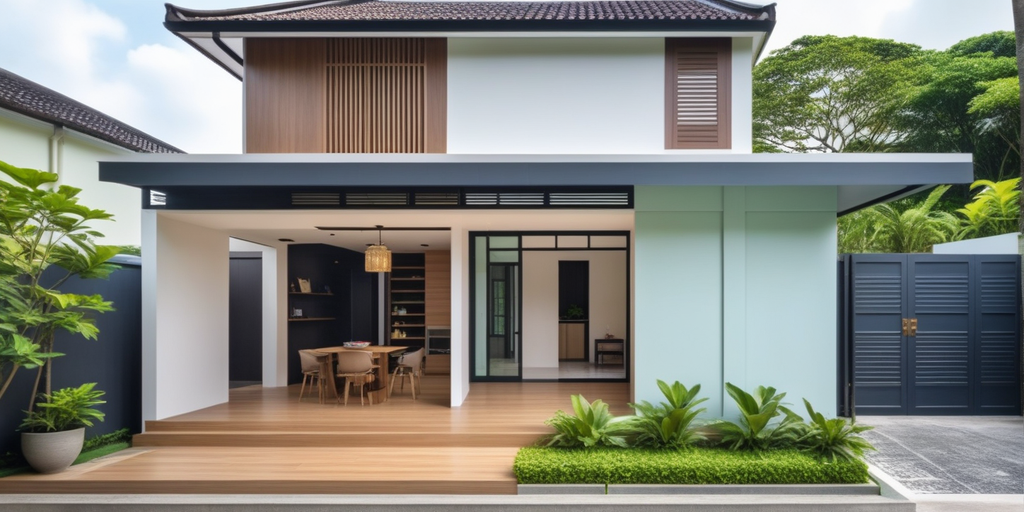
Are you planning to renovate your home but unsure about the financial aspects? Renovations can be expensive, and it is important to plan your finances accordingly. In this section, we will discuss some financial planning tips to help you manage your renovation budget and cash flow.
Creating a Renovation Budget
One of the first steps in planning for your renovation is creating a budget. A budget will help you determine how much you can afford to spend on your renovation and ensure that you do not overspend. To create a budget, you should:
- Determine the scope of your renovation: Make a list of all the changes you want to make to your home and prioritize them based on importance.
- Research the costs: Research the costs of the materials, labour, and any professional fees that you will need to pay. You can use online resources or consult with renovation professionals to get an estimate of the costs.
- Set a budget: Based on your research, set a budget for your renovation. Make sure to include a contingency fund of at least 10% of the total budget to cover unexpected expenses.
Managing Cash Flow and Savings
After creating a budget, you should consider how you will manage your cash flow and savings during the renovation process. Here are some tips to help you manage your finances:
- Use your savings: If you have savings, consider using them to pay for your renovation. This can help you avoid taking on too much debt and paying interest.
- Consider a renovation loan: If you do not have enough savings, you can consider taking out a renovation loan. Renovation loans can help you finance your renovation while managing your cash flow.
- Monitor your cash flow: Keep track of your expenses and cash flow during the renovation process. This will help you identify any areas where you may be overspending and make adjustments accordingly.
Overall, financial planning is an important aspect of renovating your home. By creating a budget and managing your cash flow and savings, you can ensure that your renovation is affordable and stress-free.
Frequently Asked Questions
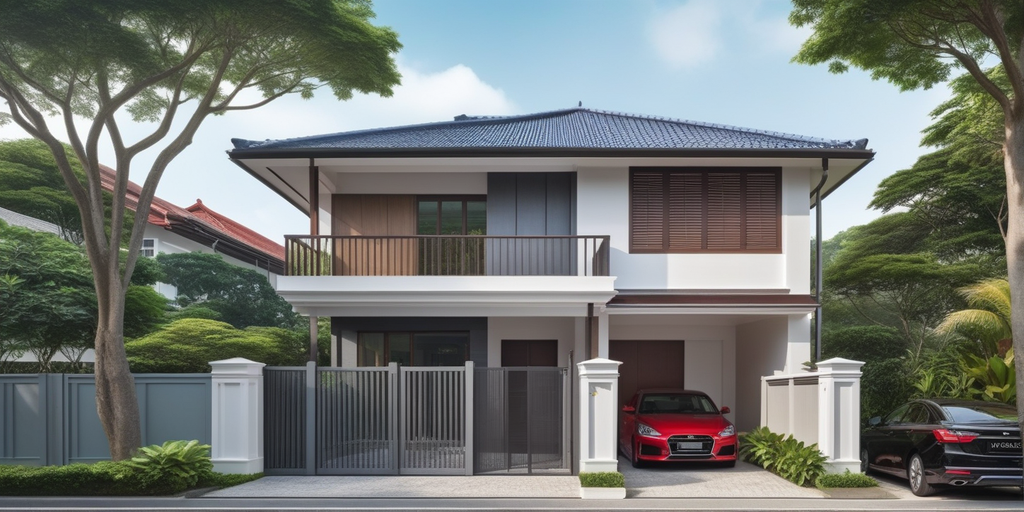
What’s the maximum amount I could borrow for sprucing up my flat?
The maximum amount you could borrow for sprucing up your flat depends on several factors such as your credit history, income, and the type of renovation loan you apply for. Some renovation loans, like the DBS Renovation Loan, offer a maximum loan amount of up to six times your monthly salary or $30,000, whichever is lower. However, other banks may offer different maximum loan amounts.
Can I spread the cost of refurbishing my home over several payments?
Yes, you can spread the cost of refurbishing your home over several payments. Most renovation loans allow you to choose a repayment period that suits your budget and financial goals. For example, the DBS Renovation Loan offers repayment periods of up to five years, which means you can spread the cost of your renovation over a longer period and make smaller monthly payments.
How swiftly can I get the green light for my renovation loan?
The time it takes to get the green light for your renovation loan depends on the bank you apply to and your eligibility. Some banks, like DBS, offer instant approval for renovation loans, while others may take longer to process your application. To speed up the process, make sure you have all the necessary documents and information ready before you apply.
Are the expenses for my home makeover entirely covered by a renovation loan?
No, the expenses for your home makeover are not entirely covered by a renovation loan. Most renovation loans cover only the cost of renovation and do not include other expenses such as furniture, appliances, or decor. It’s important to create a budget for your home makeover that includes all the necessary expenses and make sure you have enough funds to cover them.
Could a renovation loan truly be a savvy investment for my property?
Yes, a renovation loan could be a savvy investment for your property if you use it wisely. Renovations can increase the value of your property and make it more attractive to potential buyers or tenants. However, it’s important to choose renovations that add value and not just aesthetics. Consider consulting with a professional to help you make informed decisions about the renovations that will give you the best return on investment.
What are the eligibility criteria for securing a top-notch renovation loan?
The eligibility criteria for securing a top-notch renovation loan vary depending on the bank you apply to. Generally, you must be a Singapore citizen or permanent resident, have a minimum age of 21 years old, and meet the bank’s income and credit requirements. Some banks may also require you to have a minimum renovation loan amount or provide collateral. Make sure you check the eligibility criteria of the bank you’re interested in before you apply.

